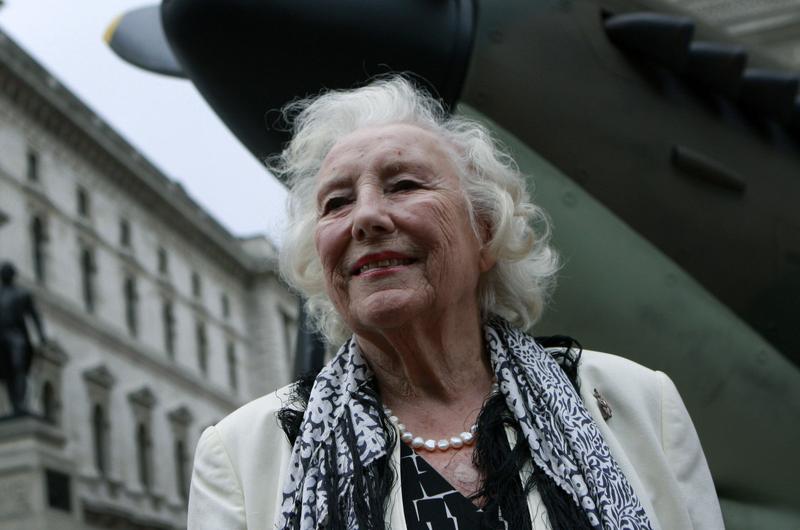 In this Aug 20, 2010 file photo, Dame Vera Lynn attends a ceremony to mark the 70th anniversary of the Battle of Britain, in central London. The family of World War II forces sweetheart Vera Lynn says she has died. She was 103 it was reported on June 18, 2020. (LEFTERIS PITARAKIS / AP)
In this Aug 20, 2010 file photo, Dame Vera Lynn attends a ceremony to mark the 70th anniversary of the Battle of Britain, in central London. The family of World War II forces sweetheart Vera Lynn says she has died. She was 103 it was reported on June 18, 2020. (LEFTERIS PITARAKIS / AP)
LONDON - Vera Lynn, the singer who became a symbol of hope in Britain during World War Two and again during the coronavirus pandemic with her song “We’ll Meet Again”, has died at the age of 103.
To mark her 100th birthday in 2017, a giant image of Lynn as a young woman was projected on to Dover’s white cliffs and a new album released
Known as the Forces’ Sweetheart, Lynn struck a chord with soldiers fighting overseas and with the public back in Britain with songs such as “The White Cliffs of Dover” that gave voice to the hopes and fears about the conflict with Nazi Germany.
To mark her 100th birthday in 2017, a giant image of Lynn as a young woman was projected on to Dover’s white cliffs and a new album released.
She was back in the news as recently as April when Queen Elizabeth used words from Lynn’s song to tell the country “We will meet again” and urge them to show resolve during the coronavirus lockdown.
Prime Minister Boris Johnson tweeted: “Dame Vera Lynn’s charm and magical voice entranced and uplifted our country in some of our darkest hours. Her voice will live on to lift the hearts of generations to come.”
Lynn was born Vera Welch on March 20, 1917, the daughter of a plumber in London’s East End, and was singing in working men’s clubs at the age of seven.
ALSO READ: Legendary Mexican crooner José José dies from
She began radio broadcasts and singing with bands in the late 1930s. But it was her wartime songs that won her fame and led to British tanks trundling into battle with "Vera" painted on their sides and more than 1,000 written offers of marriage from servicemen.
In 1941, she began a weekly radio broadcast from London called “Sincerely Yours” in which she relayed messages from British troops serving in all war theatres to their loved ones.
After the war, she lived quietly for most of her life on England’s south coast near Brighton with Harry Lewis, the man she had married in 1941, a clarinet player who became her manager.
Known locally in the village of Ditchling as Mrs Lewis, she had a passion for gardening and detective novels.
"I was lucky," she said. "I had a talent; it lifted me out of the bracket I was born into."
READ MORE: Johnny Clegg, anti-apartheid musician in South Africa, dies
"And when I got my house and a little car, I thought, well that’s all I want."


